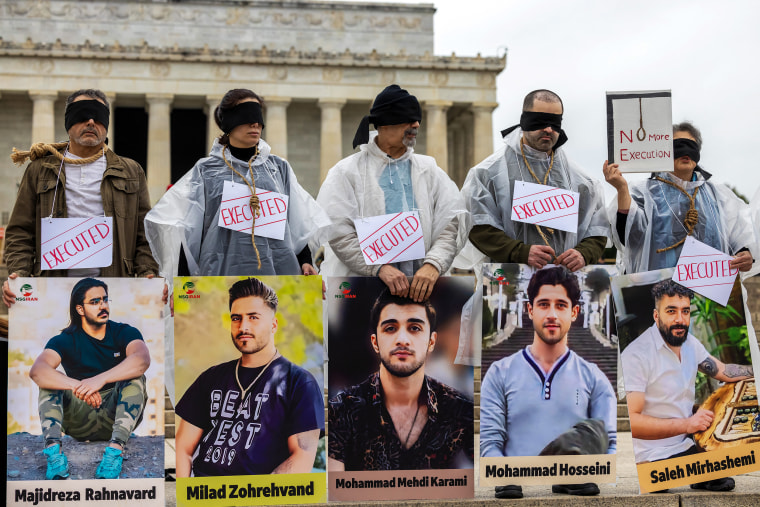The number of people executed in Iran rose to 901 last year, including 31 women, some of whom were convicted of murdering their husbands to fend off rape or after being forced into marriage, the U.N. human rights office said Tuesday.
Most of the executions were for drug-related offences, but political dissidents and people connected with mass protests in 2022 over the death in police custody of a 22-year-old woman were also among the victims, the U.N. statement said.
“It is deeply disturbing that yet again we see an increase in the number of people subjected to the death penalty in Iran year-on-year,” United Nations High Commissioner for Human Rights Volker Türk said in a statement sent to journalists. “It is high time Iran stemmed this ever-swelling tide of executions.”
In total, at least 901 people were executed by hanging last year in the Islamic Republic, compared with 853 in 2023, the U.N. rights office said. That represented the highest number since 2015, when 972 people were executed.
Iran’s diplomatic mission in Geneva did not immediately respond to a request for comment on the U.N. statement.

The 2022 protests, which sparked some of the worst turmoil since the 1979 Islamic Revolution, followed the death in police detention of Kurdish Iranian woman Mahsa Amini, who was arrested for allegedly flouting Iran’s mandatory dress code.
At least 31 women were executed in 2024, U.N. rights office spokesperson Liz Throssell told reporters at a Geneva press briefing, representing what she said was the highest number in at least 15 years.
“The majority of cases involved charges of murder. A significant number of the women were victims of domestic violence, child marriage or forced marriage,” she added.
One of the women executed for murder had killed her husband to prevent him from raping her daughter, Throssell told Reuters after the briefing.
Masoud Pezeshkian, a reformist who won election as Iran’s president in July 2024, made promises during his campaign to better protect the rights of women and minorities.






